
Tri-County Genealogical Society
"because the trail is here"
Phillips - Lee - Monroe Counties in Eastern Arkansas
PHILLIPS COUNTY
HISTORICAL QUARTERLY
Volume 6
DECEMBER, 1967
Number 1
Published by
The Phillips County Historical Society
The Phillips County Historical Society supplies the Quarterly to its members. Membership is open to anyone interested in Phillips County history. Annual membership dues are $3.50 for a regular membership and $5.00 for a sustaining membership. Single copies of the Quarterly are $1.00. Quarterlies are mailed to members.
Neither the Editors nor the Phillips County Historical Society assume any responsibility for statements made by contributors.
Dues are payable to Miss Bessie McRee, Membership Chairman, P. O. Box 629, Helena, Arkansas 72342.
Meetings are held in September, January, and May, on the fourth Sunday in the month, at 3:00 P.M., at the Phillips County Museum.
i
PHILLIPS COUNTY
HISTORICAL QUARTERLY
Volume 6
DECEMBER, 1967
Number 1
TABLE OF CONTENTS
Other Years
by Carolyn Cunningham
Phillips County's Buried Gold (?) Still Awaits the Magic Gadget
by Clarence Taylor
Editorial
by William T. Alderson, Jr.
Cows
by Dale P. Kirkman
What I Know About Helena's Public Schools
by Jacob Fink
The Hindman Family Portraits
Diary of Sue Cook - Part V
Report from John King on the Archaeological Survey of Fort Curtis
More Members
ii
OTHER YEARS
by
Carolyn Cunningham
New Year's Day, 1968--We sat around the table at Mama's and Papa's and even though we had other things, you can be sure the menu included hog jowl and blackeyed peas, both grown right there on the farm. Crackling bread was an added attraction. Now none of these delicacies appeal to me, so my only comment was, "I guess it beats nothing," which brought on more talk as to how long Mama and Papa had been having peas and hog jowl on New Year's. They quickly went back past the forty-six years they've had me, to their own childhoods. Mama is seventy-seven and Papa is eighty, and their own parents always had it. Mama said that she doesn't remember as much conversation about it as you hear now, but that people served it as if they thought perhaps it brought good luck.
We went on to discuss other New Years' and Christmases. They both said that in their homes things started days ahead of time. The cooking and the secrecy started first. Now we can go to the store, make our selections, and tell them we will pick them up on Christmas Eve. That way we don't have to worry about a hiding place. But not so then, so many of the gifts were made in the home, that a lot more secrets were involved; in fact, sleight-of-hand knowledge was almost a must, what with children running in and out all the time. Things got hidden in the oddest places.
Mama's home was in Poinsett County at Tyronza. And Papa's was in the Vineyard Community in Phillips County, about a mile south of the Lee-Phillips line.
A day or two before Christmas the man of the house took an axe and the boys, and went out on the place to get the tree, usually a cedar. This was trimmed mostly with homemade decorations, popcorn balls, strings of popcorn, berries, bright colored ribbons, and most anything that would further enhance its beauty.
1
Each community always had a tremendous tree at the schoolhouse on Christmas Eve. Every family was invited and they all came and brought the entire family. Every child present received a gift. Of course, Santa Claus is nothing new, so he came. As soon as they got home from the community tree, all the children hung up their stockings. Mantels were a must in every house then because of the fireplaces for warmth, and provided a handy place for him as he slid down the chimney, soot and all.
Christmas was a great day for visiting. People went to see friends and relatives who lived close by. Then for about ten days after Christmas they went from home to home eating big dinners. Papa's family always went to his Uncle Dock Holtzclaw's and his Uncle Henry Holtzclaw's, both brothers of his mother, as well as other homes. And his mother always had everyone at her house one day, and on that day they put the big pot in the little one and ate high on the hog, and all such things as that which people used to do three-quarters of a century ago.
On New Year's Eve a big watch party was held in one of the neighborhood homes, and although Papa enjoyed them for many years as a child, the year he was fifteen his stepfather, Louis Martin, died just as the clock struck twelve, and he said that he never enjoyed the watch parties again. His own father, Obadiah Newman Robards, had died when he was two, so once again he was the only boy among his mother and five sisters.
The partying went on all evening, but from five minutes before twelve until five minutes after, the excitement was at high pitch. Someone was stationed at the church bell, someone at the school bell, and someone at the farm bell of the family where the party was being held. The guns were fired, the fireworks exploded, bells were ringing, and a feeling of celebration filled the air. Everyone came outside as the anticipation built up for the biggest event of all, the annual New Year's Eve firing of the anvil. It made a deafening and thrilling boom, and could be heard for miles around. The men did this dangerous job. They would pack gunpowder in the hole in the anvil and set it afire. A big flash would go up and then the explosion! I have an anvil that is way
2
over a hundred years old that Papa gave me, and I like to think it has participated in many such celebrations. If so, however, it must think our New Year's Eves are mighty dull now, for all it is ever called on to do is sit under the oak tree in the front yard. After the anvil was fired, everyone ran inside to get warm, gather around the piano and sing "Auld Lang Syne" and "Good Night Ladies." After that it was time for the ones who weren't spending the night to go home. While mothers bundled up themselves and the children, the men went out to bring the wagons around to the front.
Refreshments were served throughout the evening and this usually consisted of punch, popcorn, popcorn balls, parched peanuts, candy, cookies, cake, sherbert, and ice cream. The young folks always gathered in a different part of the house from the older folks, perhaps in the kitchen where a warm fire was kept going. There was much shouting, waving, and laughter as the company drove away, everyone happily calling out, "Happy New Year!"
One thing you could nearly always count on when there was a family gathering at night, and that was a lot of singing and storytelling. And if you ever got hold of a good teller of ghost stories, Lord pity the poor children, for it was a hair-raising event. All of them were afraid to go to bed afterward, and piled in on top of parents. They even preferred sleeping crossways at the foot of the bed to going off alone to their own beds, perhaps to be stolen away in the night.
The Christmas menu always included wild turkey, deer, or bear for country people. There was open range and no hunting laws and a man could provide a good meal for his family if he were a good shot or trapper.
Papa's father was born to farming parents here in Phillips County in 1851. In 1878 he married Ella Holtzclaw. He died eleven years later, just before the birth of their sixth child. He brought his bride to a home of one room sixteen by eighteen feet, on eighty acres of solid woods. They cooked, ate, and slept in the same room, and as they could, cleared the land and built on to the house. It eventually became a five room house identi-
3
cal to so many farm homes of that day. Across a dog run was another sixteen by eighteen feet room. Behind the original room they built a big dining room and a big kitchen. Then the dog run was closed in, and on winter nights Papa didn't have to race across that freezing place at bedtime with drawers flapping. I have the foot ad that my grandfather used to trim the logs for that house. First the trees were sawed down by two men using a crosscut saw, then they were roughly shaped into a square log by a man using a broad axe and standing to one side of the log. Next a man took the foot ad and straddled the log, giving it its final trimming before it was hoisted into place as part of the wall of a house. Most of the houses had an L-shaped back porch and a long front porch across the front.
One of the big social, and by stretching a point, you might say civic events of the year was called a logrolling, and took place sometime after the crops were finished and before spring planting began. During these months the farmers were busy with lots of extra jobs, among them, clearing the land. They cut the trees down in windrows. The date would be set, and the word passed by word of mouth, and all the neighbors came on the appointed day, bringing whatever food was handy and all the family. All morning children played, women cooked, and men rolled logs. For this difficult and laborious job the men used hand sticks which were made out of hickory poles six feet long. Each log was handled by four men unless it was extra big and heavy, sometimes requiring six or eight men. They rolled the log on to the sticks, then picked it up and carried it to the pile, which grew to about the height of a man's head. After a pile was finished, they covered it with brush, This was left to dry for awhile to make it easier to burn, A lot of times these were burned at night. This was both beautiful and exciting and often the cause for another get-together. After a hard day's work, a place might be cleared near the log heaps for dancing, or they might go to the home of the person whose land they were clearing. Different men furnished the music for dancing, a string band made up of guitar, banjo, fiddle, and of course tin pans. There was always a caller present for square dancing and they waltzed a lot. Pallets were made all over the house for sleepy children. Mules were tied to
4
the wagons or turned out in the lot. They broke up about twelve or one o'clock. People came from miles around, maybe ten miles, and everyone was welcome. The ones who came from ten miles away got home about daylight. They couldn't make over three miles in an hour because of the load. The mules had to be walked because so many folks were piled on. Although dog-tired for a day or two, they all agreed it was worth it for the fun they had.
Houseraising worked in a similar way as far as invitations were concerned. The place where the house was to go up was cleared. Logs were hewed ahead of time and four piles of them put in place, one on the north, one on the south, one on the east, and one on the west of the house site. Men took their places on each corner. Those on the ground stood on the ready with handsticks, skid poles, and spike poles. They balanced the logs, got them into place, and started them upward for the walls. A crew of four men stood along the top of the wall. They pulled ropes which were tied on to either end of the log, as the men below pushed with their sticks. Occasionally mules had to be used to pull a particularly heavy log into place. About every fourth log they stopped to use an auger to drill a hole in the log to set a peg into. Pegs were about one and a half inches in diameter and six or eight inches long. When the walls were up, they used a stick which looked like kitchen firewood and placed it at forty-five degree angles and anchored it. This was necessary because often the logs were six or eight inches apart. One group of men were busy at the mortar box. They would make up a big box of mortar using sand and lime and sometimes clay and salt. They made the box ahead of time. It was three feet by about six or eight feet, then they walled the sides up about twelve inches. The mortar served as a plaster to fill all gaps and cracks and the small pieces of wood gave them something to stick the plaster to. This they used both inside and outside the house and it was very good insulation. Rafters were next to go up, and then the ceiling. Ceiling and floors were covered with planks which had been prepared beforehand by taking logs to the sawmill, and having them cut to specification. For the roof, they would go to the woods and rive boards out. They took a froe (a wedge-shaped cleaving tool) and placed it at the thickness they wanted and
5
then drove it through with a hammer. My aunt's home is still standing (or rather leaning) with this kind of roof. It is ninety-three years old--the logs are still there, too, but covered over long ago with boards. The roof was of cypress or oak. The windows were few and small. The doors were heavy, solid boards. Fireplaces were in every house. Some houses were occasionally whitewashed, a mixture of lime, buttermilk, and salt. To end up a day of houseraising there was the usual dancing and refreshments, after a big dinner at noon time.
Games were popular all year long, and like the sap rising in the tree in the spring, the gaming instinct rose in the young boys and girls. Girls sat around and talked and watched the boys, as there were more games for boys than for girls. There were always baseball and marbles, horseshoes and mumblepeg--all great sports, no betting, but much fun and excitement. Boys took a block of wood, trimmed it down, then carved out their own tops. Girls jumped rope. A rough, heavy plow line was brought from the barn and one certainly tried to become adapt at the game because when you tangled with that rope, it could cut very painfully into the legs, neck, or arms. Boys often went to the woods to swing on grapevines, and were very daring sailing from one tree to another. Of course, the wildest ones in the crowd smoked grapevines or crossvines on those excursions. A real treat in winter was for one of the old men to get up a lot of boys, dogs, and sticks and go rabbit hunting.
One luxury in spring was sweet gum to chew. They would chop around the sweet gum tree trunk and let the gum run. Sometimes you could chew it straight from the tree, but often it had to be cooked down. In spring also came the stilts. Every boy and girl had them. They had to be ready by a certain day. One day there were no stilts in sight and by nightfall the next day, everybody had them. There was much falling, hollering, and laughing. They tried to see who could walk the fartherest, the fastest, who could stay on the longest, and who had the highest. One game was shinny, a simple or crude form of hockey. It was probably thought up as a sneaky way to get even with your enemies--to pay them back without getting caught, and some folks thought the reason it was called shinny was because they crack-
6
ed you across the shins with all their might. Yours legs could end up black and blue. You played with a crumpled up tin can and sticks.
Another pastime, though not a game and no rules were involved--just pleasure--was to take a tin can (which, by the way was rather rare in those days) and beat it up, get a stick, sharpen it, and just keep the can moving along in front of you. Some boys got good enough so that they could walk a mile down a dusty road and never miss a lick. Annie-over was a crackerjack ball game, very fast and exciting. Hopscotch was fun. Another thing to do for fun, though not a game, was to take a long, narrow board, nail a flattened can on the end of it and roll a circle of iron. You could get a small wheel from the hub of a wagon, and just to go rolling along and whistling was mighty entertaining ... back in the good old days.
Mama and Papa don't have any objections to the way things are now, but their eyes take on a special sparkle when we talk about the things they used to do. Actually, they are just two people with a talent for having fun, be it four score years ago, or today.
********
HELENA WORLD
March 16, 1898
Amusements,
The veriscope pictures showing the Corbett-Fitzsimmons fight, which were given at the Grand Opera House last evening, did not attract as large an audience as they deserved. The audience however was very pleased with the pictures and many pronounced them very realistic, and interesting. The company presenting the pictures was a bit surprised at not finding a larger audience present, but should not have been, as they did not put out a line of advertising. A show worth patronising is worth advertising.
********
7
PHILLIPS COUNTY'S BURIED GOLD (?) STILL AWAITS THE MAGIC GADGET
by
Clarence Taylor
(From the Commercial Appeal of June 19, 1949)
Helena, Ark., June 18. --Seventeen years have passed since the last major "Treasure Hunt" in Phillips County. Yet those who heard the story of the "syndicate" of treasure hunters at that time are still waiting for them to return and bring with them the magic gadget with which they vowed they would locate a quarter of a million dollars in gold buried at the site of a long since vanished log cabin on a farm near Poplar Grove.
It matters little whether any of the band of five men who sought this buried treasure through two days and a night on that occasion ever visit the place again. The story itself as told later by one of them, an old negro, Ed Spruell, a tenant on the farm of Walter and Walker Moore, still furnishes material for reminiscing about golden loot supposedly cached beneath tiny log cabins that served as hiding places for marauding bands a decade or more before the Civil War.
Spruell, in telling the story, disavowed any belief in spooks or graveyard ghosts, but through his tale ran a vein of superstition.
There was the matter of the moon, for instance. The old negro was convinced that without a doubt success would have smiled upon their undertaking except that they did their digging on the "old" of the brightly beaming moon. But when he thought of this, it was too late. He had already taken part in the expedition, and like most treasure hunts it had ended in failure. This is the story he told of the search:
The first intimation he had that others than local persons were interested in a story that upwards of $250,000 in $20 gold pieces--supposedly a part of John A. Murrel's loot--was buried in the vicinity, was when two white men, one of them a "big Swede with reddish hair," who spoke English with difficulty,
8
appeared presumably to hunt squirrels on the farm. They made a hurried inspection trip over the site of the buried treasure, however, and then went away.
A short time later the Swede, in company with four other white men, arrived at the farm on a day shortly before noon. They stopped at the old negro's house, inquired if the squirrel hunting was any good in that locality, and after being assured by Spruell's wife that there were very few in that section, went on down a winding road that led in the general direction of where a small cabin which had figured in the stories of the hidden gold, had once stood.
The five men carried strange equipment for squirrel hunting. The Swede had a queer device resembling a bicycle with its wheels lying flat on the ground. Attached were coils connected to a battery several yards distant. A pendulum swung to and fro from the contraption.
When the old negro returned home and was informed by his wife of the second visit of the strangers, he went to investigate. When he found them he saw that, in addition to the tools, they were well-equipped for the search, which now clearly was not for squirrels. They possessed an old and tattered map, smudged with the fingerprints of many persons who had pored over it. The map appeared to them as plain as a blueprint, for they went directly to the bend on Big Creek indicated on the map.
They measured off 180 steps eastward. Then using a tape measure, they marked off the exact dimensions of the cabin which had once stood on the site. This, despite the fact that no trace of the structure remained--not even a foundation stone. For half a century the field had been cultivated where the party stood.
Directly in the center of a 14-foot square the five then began digging. Then, apparently fearful that Spruell might notify the owners of the farm of what was going on, they invited him to join them, promising that, as a reward for his efforts, he wouldn't ever "have to raise cotton no mo'."
9
It was about 3 in the afternoon when he became a member of the band and he fell to with vigor, anxious to remedy his poor financial condition. For long hours he labored, taking his turn with the pick and shovel. The night deepened and all except one of the men and the negro fell asleep. A moon, beginning to wane, smiled down on them. It was an old moon, however, and that "sho' wasn't any too good a sign," in Spruell's opinion. The white man thought differently, however, "It's a sign of good luck," he said.
Then the negro's pick hit a soft spot and he quickened his labor. The others were aroused. A fortune in gold surely must lie at their very feet. The soft spot was an opening that led straight down. It led into a larger cavern several feet farther down.
The sun came up on the second day and they continued to dig, uncovering the larger cavern, large enough to hold 10 men. When it was revealed completely, however, it was as bare as the inside of a newly-polished churn. The treasure they had hoped to find had long since vanished--if it was ever there at all.
Gloom settled like a blanket over the group. They gathered up their tools and quit the spot. After they had loaded these into the automobile, they gave Spruell 17 cents for his labor, climbed in and drove away down the winding road. But before they departed they left Spruell with a promise. The Swede, he said, was working on a new contraption which would locate buried treasure within a spot 18 inches in diameter. When it was finished, they would return. They had maps of other spots--some in Phillips County and some in Lee County.
That was the last ever heard from the "syndicate," however. Although yawning holes have appeared at intervals of time throughout eastern Arkansas, apparently "Murrel's gold" still remains well hidden and folks like Ed Spruell find their riches, not in buried chests far underground, but in the fields of fleecy white cotton which the men had promised Ed he wouldn't have to "raise no mo'."
10
EDITORIAL
by
William T. Alderson, Jr.
Editor, American Association For State and Local History
We've been reading with some concern a flood of recent articles and editorials concerning a shift of most of our national holidays to make them fall on Mondays. It is proposed in Congress that we do away with Washington's birthday and instead celebrate President's Day on the third Monday of February, set Memorial Day for the last Monday in May, have Independence Day the first Monday in July, observe Veterans' Day the third Monday in March, and shift Thanksgiving Day to the fourth Monday in November.
According to the backers of these changes the proposals are over-running with virtue. We are told variously that this innovation will increase the nation's industrial efficiency, improve the morale of the work force, help the tourist industry, and even reduce the number of holiday traffic deaths!
Well, we are opposed, at least in part. In our personal view the Father of the Country shouldn't share his birthday with an assorted lot of good, bad, and mediocre Presidents. We are not persuaded by the specious argument that Washington was actually born on February 11, since the change from Julian to Gregorian calendars in 1752 was taken into consideration in correctly setting the anniversary of Washington's birth on February 22. And despite the argument that the Continental Congress voted for Independence on July 2 and that it therefore makes no difference what day we celebrate, the fact remains that the Declaration of Independence was approved by the Congress, and officially signed by the President, on July 4.
Holidays aren't just another day off. By definition they are occasions for commemorating men or events; and it is the man or event that gives significance to the date, not the appropriateness of the date to long weekends, industrial efficiency, or the economic interests of the tourist industry. In our view, the abandonment of traditional dates long established in the national heart and mind will further obscure the importance of the historical events we ought to be commemorating. We think more thought should be given to the reasons why these holidays were designated in the first place. Such thought is notable lacking in the arguments for change.
Reprinted by permission of the author.
11
COWS
by
Dale P. Kirkman
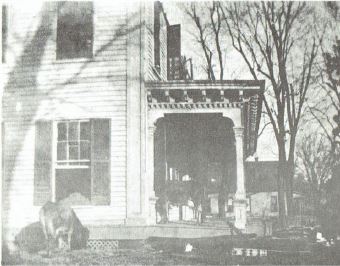
(Cows at ease on McDonough Street about the turn of the century)
According to the editor of the Helena Weekly World, a schism in the citizen body of Helena was imminent and impending in the spring of 1898--and all over the town's cows. A stock ordinance had been passed by the City Council which said that cows must be kept up and not allowed to run at large through the city streets. Reaction to such restriction was immediate and loud, and the town soon divided into "cow" (no restrictions) and "anti-cow" (rules and regulations). One could own cows and still be either "cow" or "anti-cow."
As reported by the World, feelings ran so high over the issue that the crisis of the Spanish war was superseded by the local crisis. The Helena trouble was noted also in the Little Rock
12
Democrat, and the Memphis Scimitar showed amazement and disbelief in the fact that the war crisis was less important to citizens of Helena than whether to let their cows run loose.
The World took the position that the depredations by cattle were becoming unbearable, that it was a common occurrence for one to break down a fence to get to a tempting rosebush, and that Helena cows could even open gates if they felt like it. This was attested to by citizens who had had to get up at midnight to drive three or four animals off their grounds. The World wrote that "Mr. Christopher C. Agee says it is no uncommon thing to see geese, hogs, cows and mules on the street in front of his house. He lives near the north boundary of the city, and cattle come in from the outside. Bob Walker, the cow-catcher, should patrol the northern line of the city more frequently than other points, as it is a weak point of attack." The ladies of the city were well aware of the problem, as many of them had been threatened with impalement on the horns of a cow.
The "cow" group tried to create sympathy for cow owners by saying that many poor people helped along their livings by ownership of a few animals and could not afford to fence them in. At this the World snorted. The editor of the World had talked the sheriff into giving him a list of the 101 white owners of cows in Helena, and he contended that it was a list of Helena's most solvent citizens, and preceeded to list them for the public's edification, to wit:
C. C. Agee, R. C. Burke, B. J. Bass, C. E. Bromwell, N. F. Bruce, J. B. Butts, J. C. Barlow, Sarah Burnett, H. L. Bitticks, Mrs. Clopton, S. I. Clark, D. E. Cooter, F. C. Clancy, W. A. Coolidge, H. Carvill, D. H. Crebs, C. R. Coolidge, Sr., M. J. Crocker, W. T. Dwyer, J. M. Forrester, N. J. Fritzon, Mrs. Fitzhugh, L. A. Fitzpatrick, Sam Fitzpatrick, F. T. Graves, J. A. Gonia, E. P. Govan, J. G. Higgins, H. S. Hornor, Mrs. F. T. Horn, E. C. Hornor, S. H. Hornor, B. M. Isaacs, Alfred Jones, G. D. Jaquess Est., T. M. Jacks, D. A. Keeshan, R. B. King, T. W. Keesee, Lieber Bros., Miss C. Lowry, Mrs. John Lee, D. A. Linthicum, W. R. Lake, H. Lohmann, W. E. Ladd, J. B. Lambert, M. Lieber, H. Lawrens, Aaron Meyers, John I. Moore, Mrs. F. G. Millette, Dr. F. Moore, John P. Moore, J. D. Mitchell, S. C. Moore, R. C. Moore, W. F. Mc-
13
Alexander, James McCabe, Mrs. B. Newman, R. W. Nicholls, Robert Opp Est., L. E. B. O'Connor, J. F. O'Connor, Cad Polk, Mrs. Patrick, D. W. Peck, Mrs. J. H. Pillow, W. H. Porter, Mrs. P. B. Quarles, Mrs. Quinlan, C. Quarles, W. C. Russwurm, O. C. Rayburn, Mrs. J. T. Ramsey, J. C. Rembert, A. W. Sutherland, Mrs. J. Summers, B. Senac, J. L. Solomon, C. F. Smith, E. W. Short, W. A. Short, L. A. Swantz, C. E. Smith, J. W. Sanford, J. A. Tappan, Mrs. M. H. Thweatt, J. C. Tappan, H. C. Tilson, J. C. Tanner, G. T. Updegraff, J. L. Worthley, Mrs. B. M. Watson, C. Wooten, George Walker, M. E. West, Mrs. M. E. Wellborn, S. D. Warfield, Mrs. L. J. Wilkes, C. F. Wooten.
Helena had 8,000 people, according to the World, and 137 of these (white and colored) were paying $23.25 a year in taxes on 266 cattle, or less than ten cents a head a year, and keeping the whole city in hot water. Add to this the fact that approximately $40,000 worth of residential fences had been built to keep out $1,500 worth of cattle, fences amounting to $2,500 on Beech Street between York and McDonough alone, and the situation was ludicrous. So the World advocated voting the "anti-cow" candidates on to the Council in the coming election.
"Anti-cow" candidates all won in the April election, A. W. Sutherland from the 1st Ward, Major Thweatt (who had precipitated the fight the previous summer) from the 2nd Ward, Frank B. Sliger from the 3rd Ward, and Captain E. W. Short and George W. Willey from the 4th Ward. The 4th Ward had met the most "cow" ticket resistance as the Negro vote there was large.
As the World pointed out, how could a city aspire to be really metropolitan in its desire for paved streets and sewerage if, at the same time, all its cattle were allowed to run loose?
14
WHAT I KNOW ABOUT HELENA'S PUBLIC SCHOOLS
by
Jacob Fink
(Judge Fink was secretary of the School Board at the time that this article was published in the school yearbook, The Ridge, in 1911.)
To tell what I know about Helena's public schools would carry me back to the long ago and cause the parting of the veil that divides the living, throbbing present from the scenes and activities of four decades that are numbered with the years that eternity has already recorded. What I shall tell you covers a space of forty years, and shall be a detail, in so far as space shall permit, of those things which I know from personal observation and contact and from records. What I speak of I know as a pupil and graduate of the Helena Public School, later as a teacher therein, and still later as a member of the Board of Trustees for the last twenty-four years and as its secretary for the last twenty-two years.
My first knowledge of school life dates back to 1870, soon after the present Helena Special School District No. 1 was organized pursuant to a proclamation issued in July, 1869, by the then Mayor of Helena, H. P. Coolidge. In pursuance of said proclamation, an election ensued, and resulted in the formation of the present school district, and J. M. Alexander, J. E. Bennett, J. T. White, Nicholas Straub, Austin Barrow, and J. Q. Taylor were chosen as the first Board of Directors, J. E. Bennett was chosen as the president, and John Q. Taylor was chosen secretary. Judge Bennett continued to be president of the board continuously until July, 1883, when he resigned. During the forty-two years there have been six presidents of the School Board--to wit: J. E. Bennett, Greenfield Quarles, Henry Fink, F. B. Sliger, J. B. Butts, and G. L. Davidson. During the same time there have been only four secretaries--to wit: J. Q. Taylor, Greenfield Quarles, Aaron Meyers, and the writer.
At the time of the organization of the district it was without
15
a school building of its own. The present site of the Jefferson School Building was occupied by a building owned and occupied for private school purposes by O. F. Russell, who became the first principal; and his building and his services were engaged by the School Board until 1872, when the School Board purchased the property for $6,580. The building was frame, and rested on huge cypress pilings, or posts, eight to ten feet high. It consisted of four rooms, three of which were occupied, and the fourth remained untenanted for many years, owing to the small attendance. The school grounds were enclosed on the north and east sides and part of the west side with picket fences, and on the south side and part of the west side with large wooden plank fences. The girls' grounds were separated from the boys' playgrounds by a high board fence. The grounds were unsightly, and the east side was cypress swamp, and growing in the same were willow trees. It furnished the pupils who were fond of piscatorial sports a chance to indulge in the capturing of crawfish that inhabited the pond. Later on the whole of the grounds were filled to a depth of at least eight feet. On the northeast corner of the present site was the belfry, from which at morning and recess hours the old bell would proclaim the time of assembling. In the morning it was the duty of the janitor to sound the bell, and at intermissions some boy was made proud by being specially designated by the principal to ring the bell; and many a clang went forth that was entirely unnecessary, other than to proclaim the prominence of the ringer and to advertise to his fellow-mates his popularity with the "powers that be." (In an article in the Helena World sometime in the late 1940s or early 1950s, Dr. Montague Fink, then the oldest living graduate of Jefferson School, recalled that the bell was older than the Jefferson School Building and had hung in a special tower built for it on the school grounds. "The bell was rung by a negro janitor to summon pupils to school. It was also rung for local and national notable events. When Jefferson was constructed a clock tower for the bell was planned, and it was placed therein when completed.")
During the early days of the school it was thought that more time should be spent by the pupils at school than is now deemed necessary by the teachers of advanced thought. In those days school convened at 9:15 A.M. and closed at 4:30 P.M. Between
16
noon and the convening of school there was a fifteen-minutes recess, and for small children every hour there was an intermission.
For many years, and only in the eighties, did the teaching force consist of more than three or four teachers, inclusive of the principal. The school started with O. F. Russell as principal, and Miss Georgia Slater and Miss Lucy Deputy as assistants. Up to 1872 the school continued for ten months, but since that time it has been run for seven and one-half months, sometimes for eight months, later for nine months, and some years it had to be closed down for want of sufficient funds.
Another room was added to the west side of the old building in 1877. Up to 1876 there was no High School connected with it. In that year an effort was made to establish a High School Department, but failed. The High School Department did not become a part of the public schools until several years later. It was then discontinued, and then again resumed in 1884.
In 1876 the attendance started to increase, and a fourth teacher was added to the faculty; but in 1877, owing to a lack of funds, the room which contained children under the Second Reader was discontinued. In 1877 a fifth teacher was added; but later, in 1879, this additional teacher was dropped on account of insufficient attendance.
In 1883 it became apparent that the old frame structure was becoming inadequate, so in that year steps were taken looking to the construction of the present building. Plans were advertised for, and the present one, which was a copy of a school building of St. Joseph, Mo., was adopted. At that time the school district was not enjoying a very good financial reputation. Its treasury was depleted, and its affairs were very much involved. By reason thereof, a great many of the citizens of Helena were opposed to the expenditure of additional money for a new and costly building. Litigation by way of injunctions was threatened, and personal violence against some of the directors was spoken of; but, to the everlasting credit of the people of Helena and to the credit of the good judgment and fearlessness and courageousness of the Board of Directors, the present structure was completed, which, let us hope, will stand for many years to come to commemorate
17
the progressive spirit and forethought of the Board of Directors who caused it to come into being. The old building seemed to feel that its day of usefulness was over; and by some unknown, but good, stroke of fortune, the old building, with all of its memories and early associations, was destroyed by fire on January 23, 1885. To make arrangements for the school children, the upper floors of three stores on Cherry Street were rented by the School Board until the new building was ready for occupancy.
In 1885 was the first time that the present school building was known by its present name, "Jefferson." Then it was the Board of Directors by solemn resolution agreed to call it after Thomas Jefferson, who had inscribed on his monument the three things in his life that he most highly prized: "The signing of the Declaration of Independence, the founder of the University of Virginia, and the patron of the public schools." The colored school in the same year was called "Peabody," in honor of the name of the well-known philanthropist of that name.
The progress of the city of Helena has been, and will continue to be, reflected in the public schools, and its onward strides are noticed in the attendance of the schools. Even now the accommodations of the three school buildings are taxed to their utmost by the large and increasing attendance; but with the passing of the present year, it is the earnest hope of the Helena School Board to have completed a grand and imposing High School Building, viewing from its lofty elevation the majestic sweep of the great "Father of Waters," proclaiming as it flows our devotion to education, our desire for the uplifting of our people, and the bulwarking of the safety of our country.
********
The bell to which Judge Fink and Dr. Fink referred, was made in Louisville, Kentucky, and is of solid brass, weighing well over half a ton. When mounted in the clock tower of the school, the striker of the clock hit the bell, announcing the hour to the town. Some years after Jefferson School was torn down, it was recognized that the yard of the Phillips County Museum would be a highly suitable place to display the bell, and it was placed there through the efforts of Mr. Nathan Cohen and Mr. Harris Krickle. No suitable place was found for the clock, which had been damaged in the razing of the school, and repair of it seemed almost out of the question. An extract from the Phillips County Historical Quarterly of December, 1965, gives a description of
18
the clock. "The clock in the tower of Jefferson School was a Seth Thomas clock, the motor weighing 1500 lbs. and the pendulum 250 Ibs. In the 1930s, a 1/4 horsepower motor was installed to wind the clock once a week. Before that, the clock had to be wound by hand, which was very laborious. When parts of the clock broke, new pieces were made for it in a local machine shop, and the smallest wheel in the motor was 5 inches in diameter."
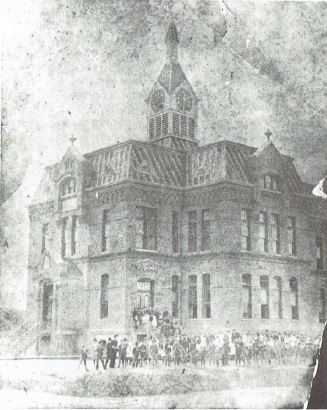
Jefferson Public School
19
THE HINDMAN FAMILY PORTRAITS
By W. J. Lemke
Fayetteville, Arkansas
The Hindman family pictures shown on these pages were collected and preserved by General T. C. Hindman's daughter Blanche (Mrs. Cox of Evanston, Ill.). Before Mrs. Cox's death in 1952 she entrusted the pictures (eight of which are colored miniatures) to her cousin, Mrs. Gertrude Ellis Miles of Fayetteville, with instructions that they are eventually to be placed in the Hindman case of the Phillips County Museum at Helena. Mrs. Miles has permitted the Washington County Historical Society to make copies of all the photographs in the collection. Thirteen of them are shown on these pages.
The notes that follow (numbered to identify the pictures) are based on a manuscript history of the Hindman family written by T. C. Hindman III at the request of his cousin, Mrs. Miles. The manuscript is inscribed "For Gertrude." Also, some of the information is from an article written by Biscoe Hindman, another son of General Hindman, for the March 1930 issue of The Confederate Veteran. Mrs. Miles herself has furnished additional information. She is the granddaughter of Mary Hindman Ellis, sister of General T. C. Hindman.
1. T. C. HINDMAN I
Thomas Carmichael Hindman was the son of Samuel Hindman and his wife, Sarah Carmichael. Samuel and Sarah were married at Lancaster, Pa., where their first son, James Henderson, was born January 29, 1791. They moved to Knox County, Tenn., where their second son Thomas Carmichael, was born November 10, 1793. The family legend is that he was the first male child born in what is now the city of Knoxville.
T. C. Hindman I served as a lieutenant in the War of 1812. On January 21, 1819, he married Sallie Holt at
20
Knoxville. In 1830 he assisted in the removal of the Cherokees from Tennessee to Arkansas. He moved to Jacksonville, Ala., in 1832, and in December 1841 bought a cotton plantation near Ripley, Miss. He was a Colonel in the War with Mexico, in which war two of his sons also served. T. C. Hindman I was accidentally killed July 18, 1856, while inspecting one of his cotton gins near Ripley, Miss.
2. MRS. T. C. HINDMAN (Sallie Holt)
Sallie Holt was born July 7, 1789, in Halifax County, Va. Her father was Robert Holt, a soldier of the American Revolution. Her mother was Mildred Stanfield, daughter of Robert Stanfield of England and Mildred Banks of Halifax County, Va.
Sallie Holt and Thomas Carmichael Hindman I were married January 21, 1819, at Knoxville, Tenn. They became the parents of six children:
Frances Elizabeth, born June 27, 1820, at Cherokee Agency, Rhea County, Tenn. Never married. Died 1843.
Herbert Holt, born June 20, 1822, at Post Oak Springs, Tenn. Soldier in War with Mexico. Unmarried. Died 1849.
Mary Lyon, born December 6, 1823, at Post Oak Springs, Tenn. Married Dr. James Baxter Ellis at Ripley, Miss.
Sarah Jane, born May 18, 1826, at Post Oak Springs, Tenn. Married Thomas Puckett.
Thomas Carmichael II, born January 28, 1828, at Knoxville, Tenn. Soldier in War with Mexico and Confederate general.
Mildred Stanfield, born December 5, 1829, at Knoxville. Married Doxey.
3. T. C. HINDMAN II
Thomas Carmichael Hindman II was born January 28, 1828, at Knoxville, Tenn. He attended the Classical Institute at Lawrenceville, N. J., and was graduated with highest honors. After the War with Mexico, in which he served as a Lieutenant, he returned to his parents' home in Tippah County, Miss. He studied law under Orlando Davis and moved to Helena, Ark., about 1854 to practice his pro-
21
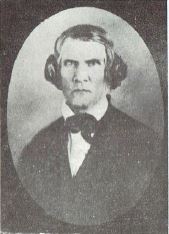 | 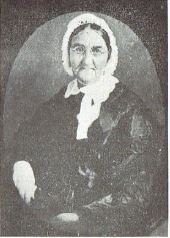 |
| 1 | 2 |
| T. C. HINDMAN I | SALLIE HOLT HINDMAN |
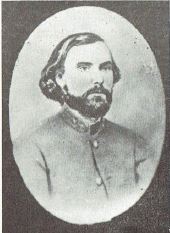 | 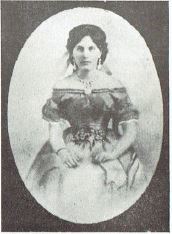 |
| 3 | 4 |
| T. C. HINDMAN II | MARY BISCOE HINDMAN |
22
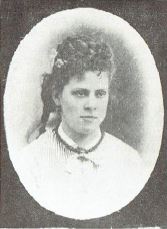 | 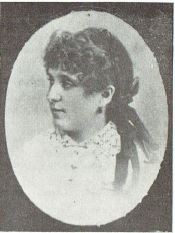 |
| 5 | 6 |
| SUSIE HINDMAN | BLANCHE HINDMAN |
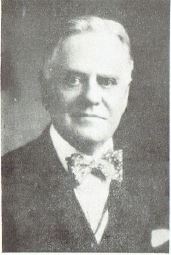 | 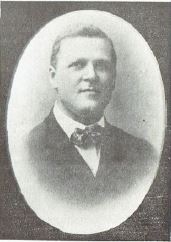 |
| 7 | 8 |
| BISCOE HINDMAN | T. C. HINDMAN III |
23
fession with the firm of Hindman, Palmer & Sanders. In 1856 he married Mary Watkins Biscoe. He was elected to the 36th Congress and served from December 5, 1859, to March 3, 1861. He was re-elected to the 37th Congress but entered the Confederate army.
He became Colonel of the regiment known to fame as "Hindman's Legion." He reported to General Albert Sidney Johnston and won promotion to Brigadier General at Bowling Green, Ky. He commanded a division at Shiloh, where he was made a Major General. He was transferred to the Trans-Mississippi Department, where he raised the army that he commanded in the battle of Prairie Grove, Ark. Again ordered east of the Mississippi, he commanded a division at Chickamauga and fought in numerous battles in Tennessee, Georgia and North Carolina.
After the war, General Hindman took his family to Mexico City, where he became a close friend of the Emperor Maximilian. After the fall of Maximilian and the withdrawal of French troops from Mexico, the General brought his family back to Helena, where he resumed the practice of law. He was assassinated on the night of September 27, 1868, while sitting in the living room of his home.
4. MRS. T. C. HINDMAN II (Mary Biscoe)
The wife of General Hindman was Mary Watkins Biscoe, daughter of Henry Lawson Biscoe and Susan Cameron Watkins. Colonel Biscoe had come to Arkansas about 1820 from Virginia. The marriage of Thomas Carmichael Hindman II and "Mollie" Biscoe took place at Helena on November 11, 1856. Best man for Hindman was Patrick R. Cleburne, who was later to attain fame as a Confederate general. Bridesmaid was Maggie Tollison, cousin of the bride. On their wedding trip they visited Mrs. Hindman's uncle and aunt in Little Rock—Dr. Robert A. and Mrs. Mary W. Watkins. Dr. Watkins was Arkansas' first secretary of state.
General and Mrs. Hindman became the parents of five children: Sallie, who died in infancy; Susie; Biscoe ; Thomas
24
Carmichael III; and Blanche Carlotta. Mrs. T. C. Hindman II never fully recovered from the shock of her husband's tragic death. She died August 19, 1876. Her uncle, Dr. Charles E. Nash, wrote: "A nobler Christian woman, a more devoted mother, or a firmer friend, never lived than Mollie Hindman. She possessed all the virtues that nature could lavish on any woman."
5. SUSIE HINDMAN
6. BLANCHE CARLOTTA HINDMAN COX
7. BISCOE HINDMAN
8. T. C. HINDMAN III
The children of General and Mrs. Hindman were: Susie, Biscoe, Thomas C., and Blanche. Another child (Sallie) died in infancy. Susie was never married. Biscoe was born in Helena in 1861. His brother T. C. III was born in Madison, Ga., during the war. In later years the two brothers engaged in the real estate business in Chicago, Ill., where Biscoe Hindman died in 1932 and his brother died two years later. Thomas Carmichael Hindman III, called "Tink" by relatives and friends, was never married. Biscoe Hindman was married twice, first to Canada West Rodman of Frankfort, Ky., then to Georgia Wood of Louisville, Ky. Georgia Wood Hindman is still living (1955) in California.
The youngest child of General and Mrs. Hindman was Blanche Carlotta, who was born in the City of Mexico. General Hindman had become a close personal friend to the Emperor Maximilian. When Blanche Carlotta was born, she was named for the Empress, who was her godmother. Blanche grew up in Helena, married a Mr. Cox, and died in 1952 in Evanston, Ill. All of the Hindman children are buried beside their parents in Maple Hill cemetery, Helena.
9. THE HINDMAN HOME
The Hindman home at Helena stood on the hill where the high school now stands. The photograph was taken about 1857. It was in the corner room at the right of the front entrance, on the evening of September 27, 1868, that
25
the General was fired on through an open side window and mortally wounded. His son Biscoe, in later years, described the tragic event as follows:
"On the night of September 27, 1868, he was quietly reading at his fireside in the home which he had erected for his family at Helena a few years before the war. The house was a large, two-story brick mansion, situated on a commanding eminence overlooking the Mississippi River in the distance. The room in which he was sitting was on the first floor, and he had himself opened a window to admit fresh air. Assassins fired upon him from the window, about ten feet distant. His hands were mangled and he was wounded in the body, neck and face. Under his direction his wife assisted him out of the room and to the front porch, as he said that he was suffocating for air.
"The tragic news spread over the little city with great rapidity, and his friends soon gathered around him from all directions. Seated in an arm chair and holding his mangled hands in a vertical position, he spoke to his friends with perfect composure as long as his strength would permit. He told them that he could not understand how anyone could want to take his life by assassination, and said: 'I have no fear of death. My only concern is for my beloved wife and our dear little children, whom I now leave in the hands of God.' Growing too weak to continue, he asked that he be laid on a lounge just inside the hall, as he 'desired to expire on that lounge."
10. THE GENERAL AND HIS CHILDREN
This picture of General Hindman and three of his children was taken on October 22, 1865. In addition to the date, the original has this identification: "Susie and her doll—Tom—Papa—Biscoe."
11. MRS. T. C HINDMAN AND DAUGHTER
This picture, probably taken in 1858, shows Mary Biscoe Hindman holding her daughter Susie.
26
12. GENERAL HINDMAN
This excellent portrait of General Hindman in uniform is believed to have been taken in the summer of 1865. The 6x8 inch original is signed "by Furbush," who may have been a Memphis photographer.
13. MARY HINDMAN ELLIS
Mary Lyon Hindman was the sister of General Hindman. She was born in Tennessee in 1823, died about 1906. She was married in 1846 at Ripley, Miss., to Dr. James Baxter Ellis. Dr. and Mrs. Ellis were the grandparents of Mrs. Gertrude Miles of Fayetteville, who made it possible for us to publish this collection of the Hindman family pictures.
This article was first printed in the Arkansas Historical Quarterly, Summer Issue, 1955. The pictures shown in the article are in the "Hindman case" in the Phillips County Museums
27
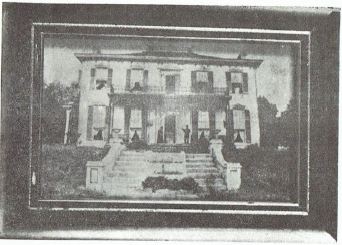 |
| 9 |
| THE HINDMAN HOME AT HELENA |
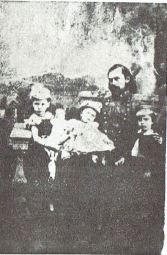 | 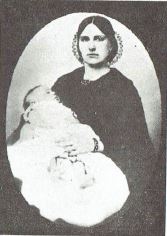 |
| 10 | 11 |
| THE GENERAL AND HIS CHILDREN | MRS. HINDMAN AND DAUGHTER SUSIE |
28
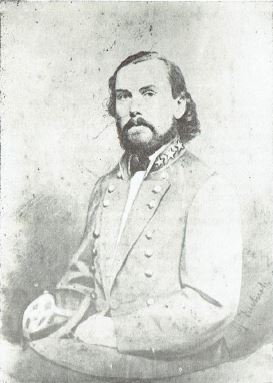 | 12 |
| GENERAL THOMAS CARMICHAEL HINDMAN C. S. A. |
| 13 | 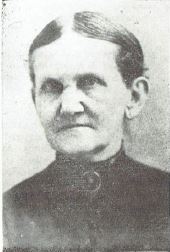 |
| MARY HINDMAN ELLIS, SISTER OF THE GENERAL |
29
PART V
DIARY OF SUE COOK (1844-1912)
1864 - 1865
Apr. 13 - Messrs. Baker, Cameron, Miles, and Rabb spent the day and are with us tonight. Cannons were fired at St. Charles today. Been firing again at Helena over the capture of Johnson's army. We have started down hill now, and we will not stop until we get to the bottom.
Apr. 14 - Mr. Baker and I went over to see Mollie this morning. Brought Emma and Mollie home with us. They with Ben Miles and Henry Rabb have spent the day and are staying with us tonight. Been raining all the evening.
Apr. 15 - Mollie and Emma went home this morning. Cousin Mollie left this evening. Mr. Crumbaugh, and Mr. Baker were here this evening. I am staying at Mr. Hutchinson's tonight. Lieut. and Tab Hicks, Mr. and Mrs. Blount, and Mr. Crumbaugh stayed until late bedtime. We have had a nice time. Pa went to Helena this morning.
Apr. 16 - Came home this morning and went up to Church. Mr. Robards preached, had but few out, went to Uncle B's for dinner. Tab Hicks came back with us and is spending the night. Ben Miles and George Gray are here. Pa has returned. Mobile and Forrest reported captured. All soldiers caught now are paroled and officers retain their side arms and all men their horses, except when they belong to the government.
Apr. 17 - Ben Miles spent the day. Henry Rabb came this evening. They are staying all night. Lieut. Thompson was here this morning. Some of the statements and rumors we have heard have been contradicted. Johnson and Forrest are said now not to be captured, and a victory is claimed for Forrest over Wilson at Selma, Alabama. We will leave it to time to ascertain the truth. I trust it is not as bad as reported. Raining.
Apr. 18 - Ben Miles spent the day again. Henry and George Gray came this evening. All are here tonight. Mr. and Mrs. Green and Tab Hicks were here this evening. The report has come from Helena that Lincoln and Seward have both been assassinated in Richmond. Lincoln was shot in a theatre. Seward's throat cut in his own room. All doors are closed in town, and crape on the knobs. My birthday.. Twenty one years ago today, I first saw
30
the light of this world.
Apr. 19 - Lieut. and Tab Hicks were here this morning. Tab and Mason Oldham came back tonight to let us know the Yankees were out over the creek, fears are entertained that Charlie was caught. Ben left tonight has gone to DuValls Bluff with a flag of truce.
Apr. 20 - Lieut and Tab and Mr. Cameron spent the day. Charlie came this evening. All are staying all night. Mr. and Lieut. Renfro and Mr. Coleman were here this evening. The Yanks ran Charlie from his Pa's, took Mr. Hicks and Mr. Bumpass and all the mules and horses on the place to town. They were after Lieut. Hicks, would have it, he is a son of Mr. H. Hicks.
Apr. 21 - A clear, cool day. Cousin Dick, Mrs. Hornor, and Ann Lambert came out this evening. Lincoln is dead, died last Saturday morning--was shot in the theatre at Washington Friday night. Seward was not dead on the 17th, and was thought to be better. His son is dead! Tis not known who did the last act but J. W. Boothe is said to have killed Lincoln. Mrs. L. was sitting by her husband's side when the deed was done. Andrew Johnson is now President. Ben Miles and George Gray are here tonight.
Apr. 22 - Cousin Dick and I went to Mr. Jarman's this evening. Cousin Hattie, Sallie Dade, K. Cameron, and Tab Hicks came this afternoon. All are staying all night.
Apr. 23 - Cousin Dick and Tab went across the creek this morning--came back tonight. Mr. Jamison, an exchanged prisoner from Ft. Delaware, spent the day and is with us tonight. Lieut. Hicks spent the evening. Pa went to Helena this morning.
Apr. 24 - Lieut., Tab and Cousin D. went hunting again this morning. Dined with us on a large turkey they had killed. Ben spent the day. Pa came back tonight--had no news. Cousin Hattie, Sallie Dade and Mr. Cameron left this evening. Ben and Tab are with us tonight.
Apr. 25 - Ben Miles left this morning. Tab dined and is with us yet. Mrs. Mooney, Mollie's Mother and Mr. S. Mooney, Lieut. and Charlie Hicks are here tonight.
Apr. 26 - Tab and Lieut. spent the morning and dined with us. The soldiers all have orders to leave--go West--going to start in a day or two. Henry Rabb, B. M., Whitly Jarman, and Mr. Jamison are here tonight.
31
Apr. 27 - Henry spent the day. Ben left this evening. Quincy Baily was here this evening. Mr. Crumbaugh and Lieut. Hicks took tea with us. Lieut. leaves for headquarters in the morning.
Apr. 28 - Annie and I went to Mr. Jarman's this evening. J. D. is no better. Tab and Ben Miles are here tonight.
Apr. 29 - Mr. Baker and Cousin Mollie spent the day. We received a letter from Brother today. He was at Grenada on his way to Laudadale for a discharge. I am sitting up at Mr. Jarman's tonight. Jeff Davis is better.
Apr. 30 - Been asleep nearly all day. Ben and Henry started for headquarters this morning. Maggie Renfro was here this eve. Ben got back tonight. All are ordered back.
May 1 - A pretty but rather cool day. Cousin Dick and Tab went hunting this morning. Tab and Ben and Mr. Cameron are here tonight. Ben suffering with headache.
May 2 - Mr. Jamison and Tab spent the day. The huntsmen had usual success. It has been confirmed that Johnson has surrendered. Lincoln's assassinator has been captured and killed.
May 3. - Cloudy, Quincy was here this morning.
May 4 - Annie, Ben, and I went to Mrs. Harryman's this morning. We are sitting up with Mrs. Neville tonight.
May 5 - Been at Mr. Neville's all day. Am here tonight.
May 6 - Nat Graves and Lieut. Green were here today. Quincy spent the day. Drew stayed all day, and is with us tonight. Mrs. Neville is somewhat better.
May 7 - Came home this morning. Emma dined with us—had venison and turkey. Whitley Jarman and Ben are here tonight. Cousin Hattie is here.
May 8 - Lieut. and Tab Hicks spent the day. Mrs. Green was here this evening. The river is falling.
May 9 - The sportsmen killed two deers and a turkey today. Lieut. and Tab Hicks and Mr. Hutchinson dined here.
May 10 - Lieut. and Tab spent the day and are with us tonight. We have been having a nice time. Lieut. Turner and Nat Graves
32
are here this evening.
May 11 - Lieut H. spent the day. Cousin Dick and Annie went back to town this evening. Lieut. Turner and Whit. Jarman came by to warn Ben this evening a yankee scout was in Mrs. Johnson's lane. The scout has gone into town, took Mr. Baker and Kenie Cameron with them. I am sitting up with Mrs. Jarman tonight. She is very sick with pneumonia.
May 12 - Cousin Mollie went back this morning. She brought me home yesterday. Ben and Henry Rabb were here this evening. They have gone over Big Creek.
May 13 - Sis Sallie and I spent the day with Mrs. Jones. Had a nice pleasant day. Ben came back this evening.
May 18 - Went to see Mrs. Neville Sunday. Came home this morning. Mrs. Jarman is expected to die. A flag of truce has been down to Helena to ask a cessation of hostilities for twenty days until K. Smith could be heard from. The Yanks could not do it. Mr. John Hicks has been here this evening. Ma is at Mr. Jarman's tonight. Pa is in Helena.
May 19 - Lieut. and Tab Hicks spent the day. Pa came home this evening. Capt. Weatherby and Mr. John Taylor are spending the night. They are under a flag of truce going down to Helena to arrange terms of surrender for the four companies in here. Everybody on the east side of the Mississippi have succumbed to Federal authority, and we are fast following in their footsteps. It is emphatically so, we are whipped. We have undergone four years of such suffering as no nation ever saw before, for nothing; yes, worse than nothing; for we have lost so many brave boys; brought humiliation and shame on a once proud and happy people.
May 20 - All of the flag met here this morning. Nearly all are here again tonight. They could not make any definite arrangements, but will go again next Thursday. Went to see Mrs. Jarman this evening. She is very ill, I fear dying-she suffers intensely.
May 21 - Lieut. Green spent the morning, Lieut. Hicks the day. Mrs. Jarman died early this morning. Sis Sallie and I have been there all the evening and are sitting up tonight. Such warm oppressive weather. I fear the doctor's income will increase rapidly this year.
May 22 - Such a warm day. Summer with its blighting influences is upon us. Mrs. J was buried this morning. Received letters
33
from Mollie Mooney, Jennie Graves and Mrs. Tilden.
May 23 - Mr. Jamison and "Pop" Smith dined with us. I received another letter from Mollie. Wrote to her and to Jennie. Dr. Adams and two other gentlemen from Monroe were here tonight, going down to Helena to take the oath.
May 24 - Those men returned tonight all o.k. Henry Rabb is here and Mr. Jamison.
May 25 - Henry and Ben left this morning---gone to Helena to get "loyal." Lieut. and Tab Hicks went in. Many others have gone. Many of the boys East are getting home, coming through Helena.
May 26 - Lieut. Hicks spent the evening. He is just from town, did not take the oath or parole. The paroling officer has not arrived. Benzoni has not the authority. Capts. Stansell and Martin have come home. Mr. Jamison, Miss Marchroads and Miss Lightfoot are here tonight.
May 27 - Pa and Mr. Jamison went to Helena this morning-had a very quiet day--been sick all day.
May 28 - Kenie Cameron and Capt. Key came back with Pa and Mr. Jamison. Cousins Mollie, and Hattie and Mr. Baker came down this evening, all are spending the night.
May 29 - We have been so busy all day making clothes for Brother Roland. He is not coming home till fall, is teaching school. Has been paroled.
May 30 - Pa and Mr. Jamison went to Helena this morning. Mr. J. has gone in to go to Vicksburg. Pa came back tonight. Cousin Dick, Ben Miles and Lieut. Turner came with him.
May 31 - All of us went fishing on Big Creek today--had quite a nice time, enjoyed the dinner very much. The boys are being paroled now.
June 1 - Cousin Hattie, Kenie and I went to Mr. Hutchinson's tonight, been having a nice time playing "Eucher." Ma is at Uncle Buck's.
June 2 - Nat Graves was here this evening. Willie Brooks is with us tonight. Both have paroles. Mac Evans and Miss Haden are married.
34
June 3 - Mr. Blount was here this morning, Heber and Tom Jones this evening. Received a long letter from Mollie Mooney.
June 4 - Annie Weatherby, Tab and Lt. Hicks came over and went with us all to church. Mr. Watson delivered a very learned and able discourse upon the coming of Christ. He believes he will again appear on earth in seventy two. Mr. Crumbaugh, Ben Reynolds, Tab and Ed stayed with us until bed time. Annie and Kenie remained all night.
June 5 - Sue Johnson and Mrs. Fitzgerald were here this morning. Capt. Martin is with us tonight. The girls are gone.
June 6 - Capt. M. spent the morning. Sue and I went to see Annie this evening.
June 7 - Lieut. Renfro was here this morning. He is trying to get up a school. We had a slight shower this evening, which revived all things a little.
June 8 - We have had such a nice shower today. Capt. Weatherly, Annie, and Cousin Dick are with us tonight.
June 9 - Cousin Dick went to Helena this morning. Annie W. and I went to Mrs. Quinlan's this evening- got caught in the rain. Annie is with us tonight.
June 10 - We have had a glorious time today and tonight. Went to a fish fry this morning - had quite a nice time. Tab Hicks and Whitley Jarman went with us. A great many persons present - took a skiff ride - got caught in a shower coming home. Lieut. and Tab Hicks, Henry Rabb, Mr. P. Taylor, Bettie Dade and Lewis all went with us to a little party at Mr. Blount's - had such a fine time, and a nice supper. All came back and are staying all night.
June 11 - I stayed at home alone this morning while the others went to church. Mr. and Mrs. Vineyard, Capt. Turner and Mr. Taylor dined with us. Been raining nearly all evening.
June 12 - Mittie Hopkins and Sue Johnson spent the day. Rained so they could not go home, and they are passing the night. Mr. Joe Blount and Cousin Dick are with us, too. Raining in torrents.
June 13 - Sue and Mittie spent the day. Rained nearly all day. Mrs. Barksdale of Helena is dead.
35
June 14 - Lewis Dade and Mr. Wiggins of Monroe County spent the day. Tab Hicks dined with us. He and Cousin Dick went hunting, killed a deer.
June 15 - Mr. Jamison dined with us today. Cousin D. has gone to Monroe County. There are strange rumors now of the Yankee nation being involved in a foreign war.
June 16 - Sis Sallie has gone to Cousin Mollie B. home. I went to Mrs. Green's this evening. A large crowd of boys and girls from Helena stormed us tonight -- danced till two o'clock.
June 17 - The crowd all left this morning after dancing one or two sets. We have been very quiet every since. I have slept nearly all day, Received two letters from Mollie Mooney.
June 18 - Lieut. Hicks dined with us. Tommie Nicholson visited us. Cousin Dick came back tonight. He brought me a letter from Rosa Beasley. Been raining nearly all day.
June 19 - I spent the day with Mrs. Green - had a very pleasant time. A clear warm day. Annie Weatherly was here today.
June 20 - I am at a party tonight at the school house - a large crowd out - having a nice time. Several old, veteran soldiers here I have not seen before.
June 21 - Came home from Uncle Buck's this morning. Had gone to sleep and was awakened with the cry, "Brother Roland and Cousin D. are coming." Sure enough they were here. Brother has returned to leave us no more. My prayers have been answered. He has returned to us again. He brought his boy home. Received letters from B. Reynolds and K. Cameron.
June 22 - Cousin Dick, Annie W., and I called on Sue Johnson this evening. Annie is staying with us tonight. I am sick tonight -- have fever. Mrs. Jones was here today.
June 23 - Been confined to my bed the whole day. Dr. Edmonson and Mr. Jarman were here today.
June 24 - Am still in bed but broke the fever this morning. Whit Jarman and Nat Graves were here today. Cousin Dick has gone back to town. Sis Sallie and Brother Roland spent the day with Mrs. Jones.
June 25 - Joe Stayton was here this morning. Brought me a
36
letter from Kenie. Cousin Dick and Henry Rabb are here tonight. Rained a little this morning.
June 26 - A cool, pleasant day.
June 27 - Annie W. was here this evening. Lieut. Renfro commenced teaching yesterday. Jennie, Bobbie and Nannie are going.
June 28 - Raining nearly all day. Ma is sick.
June 29 - Cousin D. came out this evening.
June 30 - Raining all day. Mr. Baker dined with us. Lieut. Hicks spent the evening.
July 1 - Pa went down to Helena this morning. Annie, Mr. P. Taylor, and Willie Renfro were here this morning. Lieut. Hicks is spending the night. Received a letter from Mollie Mooney and K. Cameron.
July 2 - Went to Church today. Mr. Wilkes preached. Saw many of the returned soldiers. Cousins Mollie, Hattie, and Willis Brooks and Lt. Hicks spent the day. Cousin D. has gone back to town.
July 3 - Mollie Mooney and Mr. Jim Bailey came this morning. Will Edmonson visited us this afternoon. Capt. and Mrs. Crawford are here tonight.
July 4 - I spent the day alone. Went to gather blackberries this evening. Cousin Dick came out tonight.
July 5 - Mollie and I went to Mrs. Johnson's this morning. Mr. Bailey went with us to Mr. Hutchinson's this evening. Emma came home with us tonight. Capt. Stansell is spending the night with us. Cousin D. has gone to Monroe.
July 6 - Mollie went home with Emma this morning. We had quite a storm this afternoon, hailed some.
July 7 - Ma came back this morning. Been busy preparing for the fish fry. Lieut. Dade and Mr. Baily are here.
July 8 - At twelve last night we had a splendid serenade. Capt. Otey, Foster Cage, Lt. Hicks, and Kenie Cameron were the accomodating gents. Music at all times sweet, is doubly so when aroused from a sound slumber. You hear the distant strains of
37
several instruments in the stillness, Oh! so like Heaven. We went to the fish fry. Cousins Mollie and Willis came down this morning and went with us. Emma and Lt. came by. We had a gay time in general. I never enjoyed a day better. Had a nice little dance. Several came home with us, including the serenaders. All except Brother R. and myself went after supper to Mr. Jamison's and danced, till midnight.
July 9 - We all went to the school house to hear Mr. Vineyard preach. Had Capt. Otey for an escort. Mr. V. did not come. Lewis Dade and Capt. Otey spent the day. Lieut. Turner and Nat Graves called this evening. Been raining all evening. July 18 - On Monday 10th I went home with Mollie to her Egyptian Cabbin the other side of St. Francis River. We had a quiet, nice time - went fishing and skiff riding every day, which being a rustic in such, I enjoyed exceedingly. Came home this evening, was caught in several showers. Found Sis Sallie gone to Mississippi. Received a letter from Mrs. Tilden. Lieut. Thompson and Miss Jones are married.
July 19 - Mr. Jamison and Annie W. were here this evening. Jennie is quite sick. Pa has gone to Helena.
July 20 - Mrs. Wynne, Mr. Fitzgerald and Mrs. Johnson spent the day with us. Mr. and Mrs. Jamison the evening. Mrs. W. Renfro and Mrs. Green took supper and stayed till bed time. Pa has returned, brought me a saddle and bridle, which I am very proud of.
July 21 - Dr. Edmonson was called to see Jennie today. Capt. Weatherly and Charlie Coldige were here this evening.
July 22 - Pa attended a civil meeting. We are at least going to make an attempt to put down military tyranny. Rained this evening. It does seem that the flood gates of Heaven have been thrown wide open.
July 23 - Bro. and I went to church this morning. Heard Mr. Buckrum discourse from a portion of the Psalms. A great many persons were out. We went to Uncle Brooks to dinner. Col. Brasier dined there also. Rained again.
July 24 - Wrote to Mollie Mooney this evening. I am staying with Mrs. Fitz. and Sue Johnson at Mr. Jarman's tonight. Had a nice time till very late playing eucher.
July 25 - Pa went to Helena this morning, returned tonight and
38
brought Cousin Dick with him. Mr. Mill Sale and Carrie Edmonson called this afternoon. Annie W. is here tonight.
July 26 - Pa has been sick all day. Sue Johnson, Whitley Jarman, Bro. and I went to Mr. A. Smizer's this evening to call on Miss Knox. Had a delightful ride.
July 27 - Mrs. Dr. Rice and Emma spent the day. Cousin Dick, Bro. and Nannie have gone to a party at Mr. Hutchinson's tonight. Pa was taken much worse about eight o'clock tonight, sent for Dr. Edmonson. Ma and I are sitting up keeping silent watch by his bedside. He suffers intensely.
July 28 - Pa has been very ill the whole day, no better tonight. Sent for Dr. Edmonson. Mr. Burnette and Mr. Hutchinson are sitting up with us.
July 29 - Cousin Dick went to Helena this morning – brought Mary out with him. Several persons have called to see Pa. He is better but suffering yet.
July 30 - Several gentlemen were here this morning among others Ben Hord, one I had not seen for over two years. Pa is much better -- recovering rapidly. We went riding this evening, Cousin D., Mollie, Bro. and I -- brought Annie W. home with us.
July 31 - Cousin D. went to Helena this morning, returned tonight. He brought Jerdy Lambert with him. Sis Sallie is not coming home for two or three weeks yet. W. Edmonson was here this evening.
Aug. 1 - A fish fry up at the Bluff. A party at Mrs. Harryman's tonight. A large crowd of us assembled there tonight. All enjoying ourselves finely
Aug. 2 - Came home -- found Ma sick. Could scarcely get any sleep, but will make up tonight. Mr. Jones was here this morning. Cousin D. is in Helena.
Aug. 3 - Bro. and I went to call on Mrs. Sale this evening. Rained all the time while there, Cousin Dick came back tonight. Brought Annie Lambert with him.
Aug. 4 - Been alone all day. Capt. Key and Ben Miles are with us tonight.
Aug. 5 - All went fishing this morning. I spent the afternoon
39
at Mrs. Green's. Ben Horde came home with me. Ben Miles has returned to Helena.
Aug. 6 - Cousin Dick and the girls went to Monroe County this morning. Rained all evening.
Aug. 7 - Received a letter from Mollie Mooney. Tom Jones and Mr. Morgan were here this evening. Mr. Jesse Wilks, a companion in arms of Brother's, is staying all night.
Aug. 8 - Ben Horde and Nat Graves dined with us. I went down to Mr. James Smizer's this evening. Their little boy was so sick I remained all night. Dr. Ford, Mrs. Ford and I are sitting up all night.
Aug. 9 - Came home this morning. Emma and Ada spent the day with us. Nat Graves was here this evening. Pa is quite sick again tonight. Sent for the doctor.
Aug. 10 - Spent this morning at Mrs. Green's. Col. Sale was here this morning.
Aug. 11 - A big barbecue on Big Creek today. Emma came by. Bro. and Nannie went. Wrote to Mollie Mooney. Mr. Renfro was here this evening.
List of white students in School District No. 16 (Southland), as shown in the School District Record of 1881: J. O. Carter, aged 17, Sally Maude Gray, 10, R. Dudly Gray, 7, Malcolm Hicks, 15, Clark Hicks, 14, Weatherly Hicks, 11, W. A. Gregory, 7, Rose E. Hudson, 20, Milly A. Hudson, 16, ---- Hudson, 15, Jos. S. Hudson, 12, Edward Hudson, 10, Fred Hudson, 7, T. E. Hawkins, 10, Thomas J. Gordon, 7, Gray Carpenter, 7, L. A. Ramsey, 20, Lewis Raggio, 18, Thomas Raggio, 12, Kattie Murdock, 13, Cary Guinn, 12, Jimmy Cibby, 16, Jarvy O'Shields, 16, Mack O'Shields, 14, John O'Shields, 20, Walter O'Shields, 8, Maggie Carpenter, 15.
40
Report from John King on the archaeological survey of Fort Curtis
During September of 1967, the Phillips County Historical Society discovered that the First Baptist Church was going to destroy the Russwurm home on the corner of Perry and Columbia Streets and remove the dirt, thereby lowering the lot some six or seven feet. They would then pave this same area, converting it into a parking lot for the church.
The Society has some unverified records leading to the belief that this area is the original site of Fort Curtis, built about 1862, when Union forces occupied "Old Helena."
Burney McClurkan, survey archaeologist for the Arkansas Archaeological Survey, was contacted by the Society to investigate this land for the purpose of establishing the location of the fort. Mr. McClurkan will be using copies of maps drawn in 1863 by Union engineers and given to him by the local Society. The map shows a 64 feet well and he assumes that it was a steep well that went down to the water table. According to this map, the upper 50 feet of the well was square and shored up with timber, and the bottom 14 feet of the well was circular and made of brick. The map also shows a powder magazine to store ammunition. This was cut out of the earth below the fort and shored up with timbers.
Fort Curtis named for Major General Samuel Ryan Curtis, was located on the west edge of "Old Helena." It had a natural ridge on the east, and the other three sides were built of about 10 feet of earth and reinforced with logs.
After three days of digging at the site and finding nothing of value, McClurkan returned to Pine Bluff with the intention of returning to the site when the church started to remove the dirt, to see if this would help him in locating the well, and from that point all other items could be found. Some local "old timers"' in visiting the dig told the archaeologist that the area had been
41
lowered about 10 feet before the construction of the Russwurm home and felt that most of the fort was destroyed at that time. Mr. McClurkan had the same impression.
...... MORE MEMBERS
| Mrs. Rufus Carruth | Barton |
| Ernest Cunningham | Helena |
| Mrs. Glenn L. Perry | Houston, Texas |
| Miss Lily Peter | Marvell |
| Harry G. Stephens | West Helena |
| Mrs. Kate O. Tarkington | Los Angeles, Calif. |
| Mrs. J. F. Wahl | Helena |
42
If you have questions or problems with this site, email the TCGS Coordinator, Ms. Carrie Davison, or the Webmaster, Ms. Debra Hosey.
Please do not ask for specific research on your family here. Use the
Research Help page instead.